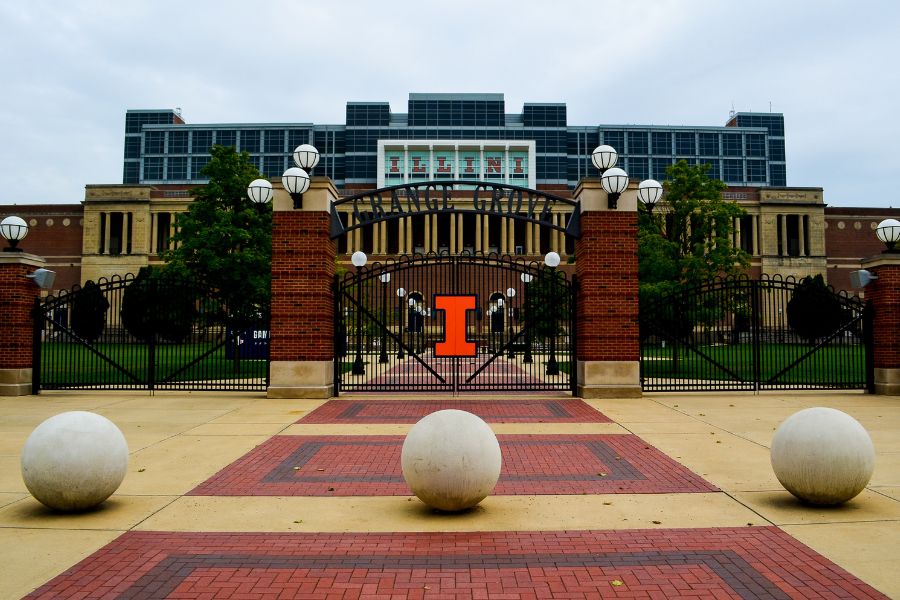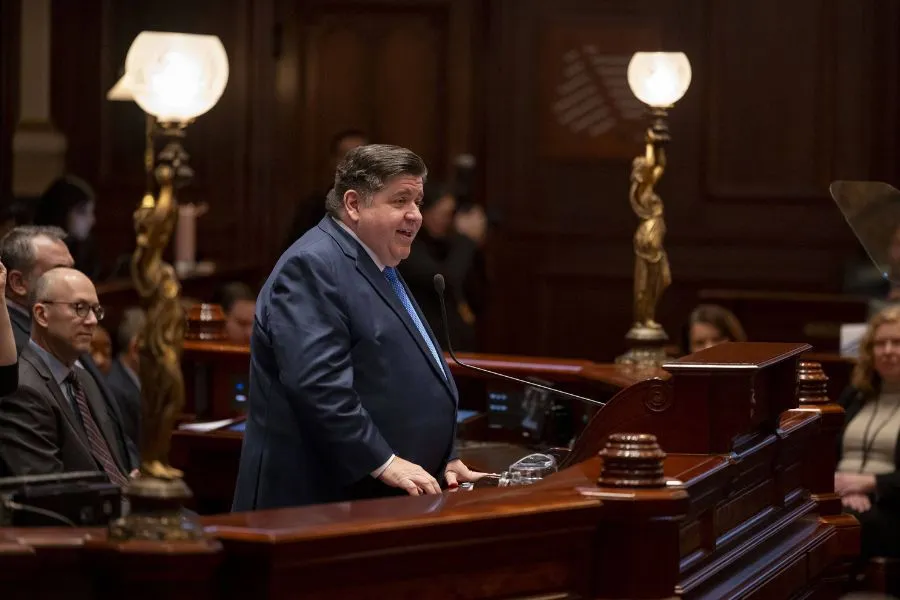That’s because the Illinois House of Representatives last week moved forward a bill that would allow for online sports betting on in-state college sporting events.
While other states followed New Jersey’s lead in 2018 and banned betting on in-state college contests, Illinois wound up with a curious compromise when it legalized sports betting in 2021.
The compromise was that gamblers could bet on Illinois college sports if they visit a brick-and-mortar casino, but not on their smartphones or laptops, or desktop computers.
The agreement will expire on July 1, so no action would leave Illinois with no in-state legal betting at all – forcing gamblers who wish to wager on such games to the illegal market or to visit a nearby state to place their bets. Either alternative costs Illinois tax revenue.
The bill would amend the Sports Wagering Act and allow online betting on Illinois college teams but – and this could be an important wrinkle – continue the state’s blanket ban on betting on individual player performances in all circumstances.
Still, University of Illinois athletic director Josh Whitman has not wavered from his stance of 2021 that legal wagering on in-state college teams is dangerous.
Powerful Foe Of Betting Expansion
At a House Gaming Committee hearing last week, Whitman testified as the representative for all of the state’s Division 1 athletic directors whose student-athletes would be impacted:
“Our athletic programs bear 100 percent of the risk of the decisions that you all are making,” Whitman said. “By implementing more broad-based in-state collegiate sports gambling, the people who are placed at risk are our student-athletes, our university students, and the integrity of our contests. Yet there’s no resources there to help us address how to mitigate some of those risks.”
“Everything that we were worried about when we first started having this conversation has ultimately come to pass. Our student-athletes are being frequent victims of online abuse. They are being ridiculed with very hostile words.
“They are 17, 18, and 19 years old, and now they’re being put in a position where they are the subject of hundreds of thousands, if not millions of dollars, in gambling.
“These are kids. They are years removed from their high school prom. And all of a sudden, they’re being placed at the center of this environment that you’re creating for them – not us.
“Philosophically, my colleagues and I have a problem with that. And everything we had thought would happen has in fact happened over the last few years. So we very much oppose seeing this broadened to include online and mobile applications.”
While several committee members challenged many of Whitman’s assertions – especially the idea that the social media negativity only exists because sports betting has been legalized – state lawmakers not closely attuned to the issues might find Whitman’s pleas to be persuasive.
The bill has been referred to the House Rules Committee. No timetable for the next step has been announced, but with the end of the Illinois state legislative session coming on May 19, look for a resolution of the issue before then.
While there are 13 Division I schools eligible for the popular “March Madness” college basketball tournament, this year only the University of Illinois – a first-round loser – and Northwestern – a second-round loser – qualified for the 68-team bracket.
Therefore, the absence of legal mobile sports betting this spring did not have a major impact on the sportsbooks. And for college football, only those same two schools play at the sport’s highest level – with both competing in the powerful Big Ten Conference.
Responsible Gambling Bill Advances
A different bill that offers a modest tweak to responsible gambling regulations in Illinois also is making progress. It already has been approved by the state Senate, and last week the same House Gaming Committee took a procedural step that moves it closer to passage and a trip to the Governor’s desk.
The amendment reads:
“The Board shall require a licensed online sports wagering operator to, at least once every hour, display a message advising the individual of the time elapsed since logging on, advising the individual of the amount of money wagered since logging on, and including hyperlinks to websites and telephone numbers that offer gambling addiction assistance.”
The new language is similar to that announced last month by New Jersey regulators, who have spent more than a year focusing on how sportsbooks can better track and aid those gamblers at their sites who run the most risk of financial ruin.






